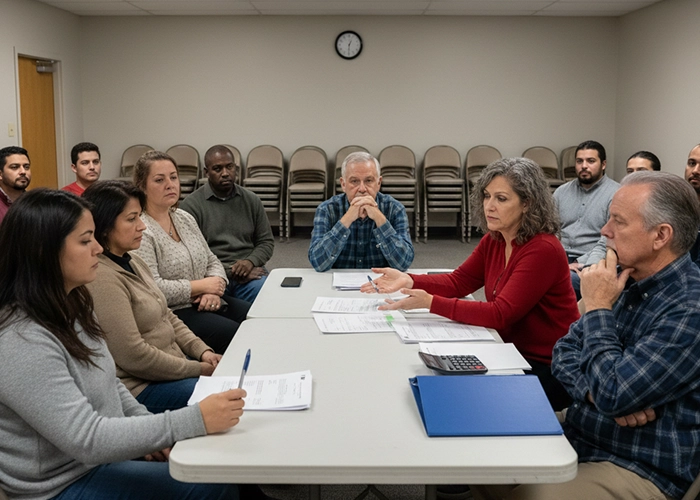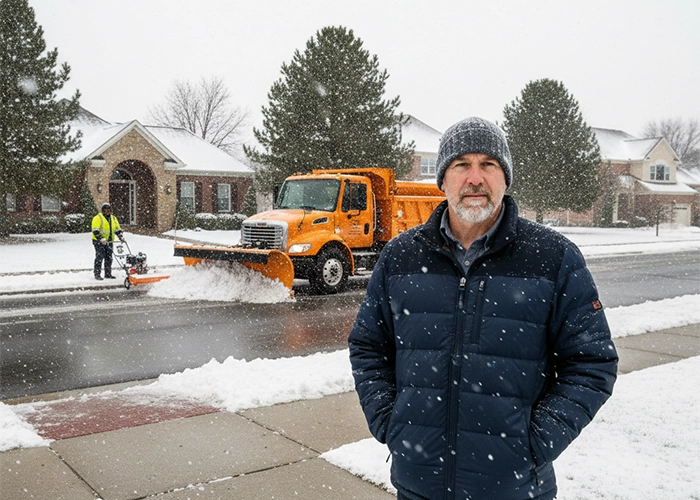What Is The Purpose Of An Interim HOA Board?

When a new HOA is formed or when something unexpected disrupts a sitting board, someone has to step in and keep things running. That’s where an interim HOA board comes in. It’s a temporary setup, but the work it does early on can shape the future of the community in a big way.
Browse By Category
Sign up for Our Newsletter
When a new HOA is formed or when something unexpected disrupts a sitting board, someone has to step in and keep things running. That’s where an interim HOA board comes in. It’s a temporary setup, but the work it does early on can shape the future of the community in a big way.
What’s the Role of an Interim HOA Board
An interim HOA board typically steps in when a community has yet to establish a board of directors or when it’s transitioning between leadership. Typically, these scenarios occur when the development is brand new or when the builder or developer requires a group to handle basic operations until homeowners can elect their own board.
Sometimes, an interim board may also need to step in if all members of the current board resign or are unable to fulfill their duties.
While this set of officers is temporary, their responsibilities still carry significant weight. For one, they usually need to handle the groundwork. These include creating community rules, managing finances, and hiring the HOA’s first service providers, all while overseeing the day-to-day operations.
Eventually, the work they do will serve as the basis for what the permanent board will work with in the long run.
Why an Interim HOA Board Matters
If your HOA doesn’t have an active governing body, expect problems to happen instantly. From missed payments to rule enforcement failures, your HOA won’t be able to function correctly without any form of leadership.
An interim HOA board steps in to avoid that. Additionally, it also keeps your association legally compliant while ensuring you have sound finances, even without an elected board.
This temporary board also helps your community retain its overall integrity. It ensures that residents have access to essential services and that important decisions are made promptly.
Think of them as the stopgap that prevents any issues from becoming an even bigger problem.
If the interim HOA board performs well, the community will be able to enjoy a stable environment, allowing the permanent board to step in and lead with confidence.
What the Interim HOA Board Does
The specific tasks can vary, but most interim HOA boards handle things like:
- Writing and approving the association’s governing documents
- Setting up a basic budget and collecting dues
- Hiring vendors for services like landscaping, pool maintenance, or trash pickup
- Managing insurance and legal filings
- Scheduling the first election or community meeting
- Opening bank accounts and getting financial systems running
- Enforcing basic rules in the early stages
Even though they’re temporary, the interim board lays down a structure that the permanent board will build on.
When a Community Needs an Interim Board Fast

Not every interim board starts at the beginning of a community’s life. Sometimes, it’s about picking up the pieces. Maybe a few board members quit unexpectedly. Perhaps no one ran for a spot in the last election. Whatever the reason, if there aren’t enough people to run the HOA, the community has to find temporary help. These interim HOA board positions are typically filled by appointment or through volunteer service until the next election.
In these cases, having a management company or using effective HOA management software can be a huge help. They often suggest qualified individuals who can seamlessly fill in, ensuring the bills get paid and the community stays on track.
What Challenges Do Interim Boards Deal With?
Being on an interim board can be tricky. You’ve got the authority to make decisions, but you’re also expected to keep things flexible for when the permanent board steps in. That means documenting everything clearly, especially when it comes to finances or long-term vendor contracts.
Interim boards also receive a lot of scrutiny. Homeowners might feel like decisions are being made without their input. This is especially true if they didn’t get to vote for the board in. Good communication, regular updates, and being open to feedback go a long way toward building trust.
When to Step Down
An interim HOA board is never meant to stick around forever. Its job is to guide the community through a temporary phase and then step aside once the time is right. Dragging out that transition can lead to frustration, mistrust, and unnecessary complications.
Here are some of the signs to look out for
- The community has reached its turnover milestone, which occurs when a set percentage of homes have been sold.
- A homeowner election has been held, or one is already on the calendar
- The developer has finished their involvement, and it makes sense for residents to take the lead
- Homeowners are ready to step in, and there’s interest in forming a resident-led board
- The groundwork has been done, with budgets, rules, and vendor contracts already in place
When that moment comes, the interim board should prepare for a smooth handoff. That means organizing records, passing along financial information, and ensuring the new board has everything it needs to take over. If possible, offering some guidance during the early days can go a long way. A clean exit helps the new board get off to a strong start. It also sets the stage for responsible leadership going forward.
What Should Homeowners Expect?

If you’re living in a community run by an interim board, stay informed. Read the governing documents. Ask questions. Show up to meetings if you’re allowed. You may not be able to vote yet, but your voice still matters, especially when it comes to shaping the community.
Some interim boards or developers even create resident committees, so homeowners can have a say in big decisions before the permanent board takes over.
Legal Protections and Oversight
Even though an interim HOA board isn’t permanent, it still has to follow real legal rules. State laws and the community’s own governing documents spell out what the board can and can’t do.
For example, in California, the Davis-Stirling Act requires the developer to transfer control once 75% of the homes have been sold. It also makes sure the outgoing board shares essential things like financial records and contracts, so the new board isn’t left trying to piece everything together.
Florida law (Statute §720.307) sets a similar standard. It gives a clear timeline for turnover, based on either the number of homes sold or a set time limit, usually seven years. It also outlines what the developer must provide during that transition.
Texas has its own take on this in Chapter 209 of the Property Code. Once specific benchmarks are met, homeowners gain the right to hold elections and access association records.
These laws aim to protect communities. They maintain interim boards as transparent and accountable as possible. And if something doesn’t sit right, homeowners have every right to speak up, ask questions, and make sure things are being handled properly.
A Temporary Board with a Long-Term Impact
The interim HOA board will not lead forever, but they lay the groundwork for how the community will run years into the future.
Want to make the transition smooth for your HOA community? Let professional HOA managers help you out! Check out our online directory today for your area’s best HOA management companies!
Related Articles:
Trending Now
Related Article
Sign up for Our Monthly Newsletter
Sign up below for monthly updates on all HOA Resource















